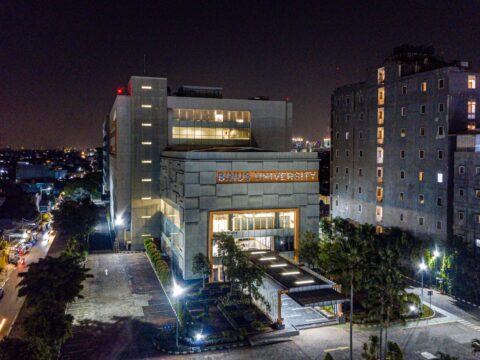Industrial Engineering (Online Learning)
BINUS ONLINE LEARNING
Program Description
Industrial Engineering program is a branch of engineering that engages in the study of how to describe, evaluate, design, modify, control, and improve the performance of integrated systems of people, materials, and technology, viewed over time and within their relevant context. Industrial engineering is unique in its blend of fundamental topics in mathematics, physical and engineering sciences knowledge with the principles and methods of engineering analysis and design. This field identifies human being as central contributors to the inherent complexity of such systems. Globalization has opened up more doors for service industries worldwide, which leads to an increased demand for industrial engineers. The Industrial Engineering curriculum at BINUS UNIVERSITY is structured to adapt the movement of globalization and tailored to the needs of the globalized world.
Prospective Career
Industrial engineers are employed in manufacturing and service industries. Several career options for industrial engineers include, are but not limited to, the following: Production/Operation Engineer, Quality Assurance Engineer, Supply Chain Engineer, Data Engineer, System Analyst, Product Spesialist, Service Engineer, Maintenance Engineer
